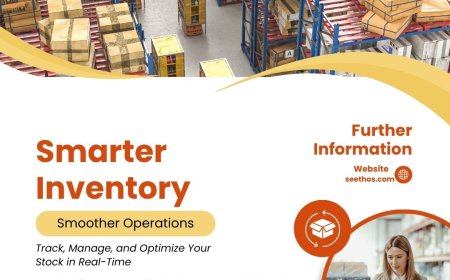How Indian App Developers Are Revolutionizing Kuwait's Digital Landscape
This in-depth guide explores how Indian teams are reshaping Kuwait’s mobile experience—from startup MVPs to enterprise-grade digital platforms. It examines benefits, integration models, quality assurance, cultural alignment, and performance metrics. With SEO-focused structure, five essential FAQs, and a strong conclusion, this article delivers actionable insights for businesses seeking mobile innovation in Kuwait.

In recent years, Kuwaits digital transformation has accelerated dramatically. With mobile penetration rates soaring above 90%, consumers and businesses increasingly demand sophisticated apps across finance, retail, healthcare, education, logistics, and government services. At the heart of this change lies a strategic partnership: Kuwait-based businesses are increasingly turning to mobile app development companies in India. This cross-border collaboration brings world-class tech talent, competitive pricing, and deep scalabilityall critical drivers for Kuwaits evolving digital landscape.
This in-depth guide explores how Indian teams are reshaping Kuwaits mobile experiencefrom startup MVPs to enterprise-grade digital platforms. It examines benefits, integration models, quality assurance, cultural alignment, and performance metrics. With SEO-focused structure, five essential FAQs, and a strong conclusion, this article delivers actionable insights for businesses seeking mobile innovation in Kuwait.
A New Era in Kuwaits Mobile Experience
Smartphone ubiquity in Kuwait has transformed consumer behavior. Users now expect apps with:
-
Easy online banking and instant payments
-
Hyperlocal delivery and on-demand services
-
Telemedicine and remote learning access
-
Smart building and utility management
-
Corporate mobility solutions (field services, logistics)
Meeting these demands requires more than in-house teams. Code quality, speed of delivery, and cost efficiency matter. Indian developers offer that plus scalability, global best practices, and strong English-language capabilities. As a result, mobile app development company in India are increasingly seen not as offshore vendors, but as strategic partners in Kuwaits growth story.
Why Indian Teams Deliver Excellence
1. High-End Technical Expertise at Scale
India produces nearly 2 million STEM graduates annually. Developers trained in native (Kotlin, Swift), cross-platform (Flutter, React Native), and backend stacks (Node.js, Django, Java Spring) bring expertise critical for both MVPs and large-scale solutions.
2. Cost-Efficient Quality
With operational costs typically 3050% lower than GCC markets, Kuwait organizations enjoy premium output without financial strain. Cost savings can be reinvested in market expansion, analytics, or growth marketing.
3. English Proficiency and Clear Communication
Strong English fluency enables Indian teams to write clean documentation, read and understand UX prototypes, and participate fully in agile workflows with Kuwaiti product ownersminimizing miscommunication.
4. Agile Delivery Processes
Firms utilize Scrum frameworks with transparent sprint tracking and tools like Jira, GitLab, and Slack, enabling fast iteration and early user feedbackcritical for delivering features in response to local user behavior or cultural feedback.
5. Experience with Gulf Workflows
Leading Indian firms have successfully delivered apps for GCC clients, enabling them to manage:
-
Arabic UI and right-to-left layouts
-
Regional payment gateway integration (KNET, mada)
-
Local authentication protocols
-
App store submissions with Arabic metadata
Their project managers are skilled in coordinating across time zones, managing approvals, and ensuring soft launches in Kuwait.
The Strategic Partnership Models
Team Augmentation
Business builds in-house design and architecture; Indian developers plug in as team members working in alignment with workflows. This hybrid model supports local ownership and offshore bandwidth.
End-to-End Outsourcing
From concept to deliveryincluding design, development, testing, deploymentIndian companies carry full responsibility. This model suits businesses without internal tech teams, offering turnkey accountability.
Co-Delivery via Dubai or GCC HQ
Some organizations use Dubai-based consultants who act as onshore liaisons. These consultants coordinate between Kuwaiti stakeholders and Indian development teams, ensuring cultural alignment, Arabic quality checks, and performance optimization.
Integration Best Practices
Clear Project Charter
Define scope, deliverables, budget, timelines, and quality expectations upfront. Include Arabic language requirements, branding guidelines, and user persona definitions tailored to Kuwaiti audiences.
Agile Collaboration
Maintain 2- or 3-week sprints with daily check-ins and monthly reviews. Use tools like Figma for design review and real-device testing for UI accuracy under Arabic and English.
Arabic UI and Localization
Indian developers may lack Arabic-first experience; include explicit guidelines:
-
Clear instruction on Arabic text flow, font sizing, and label alignment
-
Test on multiple device types for scaling issues
-
Involve local testers early in sprint cycles
Payment Gateway Integration
Experienced teams can integrate local wallets and gatewaysensuring downtime management, retries, and certification compliance with KNET or mada.
App Store Optimization
Indian teams with GCC experience handle Arabic metadata, graphics, and store complianceensuring smooth approvals in Apple and Android stores.
Quality Control and Assurance
Comprehensive QA Program
Localized quality assurance must include:
-
Arabic UI testing across devices
-
RTL flow checks
-
Integration tests for payments, APIs, offline handling
-
Security assessmentsdata encryption and GDPR/Kuwait Privacy Law compliance
User Acceptance Testing (UAT)
Conduct in-region UAT sessions with real users or corporate testers to uncover UX issues and help adapt flow to cultural preferences.
Performance Optimization
Ensure low memory usage and smooth animations on older or low-end devices common in Kuwait. Optimize backend for 3G/4G latency and regional server hosting.
Success Stories from Kuwait
Digital Wallet App
An Indian partner built a prepaid wallet and loyalty app with KNET integration and multilingual support. The launch succeeded with 50,000 installs in the first three months, driven by promo campaigns.
Real Estate Utility Management
A property management firm used an Indian team to build an app for service requests and tenant analytics. Speed of deployment, Arabic UI accuracy, and backend scalability stand out.
Telehealth Platform
A healthcare provider launched in six months with video consultation, lab reports, payment integration, and appointment remindersembracing Flutter for cross-platform delivery.
Student EdTech App
An education app with quizzes, content, and gamified incentives achieved a 4.8/5 store rating and 70% retention by integrating WhatsApp reminders and offline accessfeatures carefully tailored in Arabic.
Navigating Risks and Ensuring Success
Cultural Sensitivity
Engaging with Gulf culture proactivelyfestive recognition, appropriate visuals, relatable examplesis vital.
Code Ownership and Governance
Define IP, escrow arrangements, direct code access, and documentation to ensure long-term viability and transparency.
Time Zone Overlaps
Schedule key user demo slots during afternoon Kuwait time, enabling design and development sync without late-night meetings.
Maintenance and Scalability
Include support contracts for updates, feature requests, platform upgrades, and server scaling to ensure app longevity.
Measuring Success: Metrics You Should Monitor
-
Downloads & Activation Rate: Measure reach and early engagement
-
DAU/MAU and Session Length: Understand usage patterns
-
Net Promoter Score (NPS): Gather public feedback
-
Average Order/Transaction Value: Evaluate monetization
-
Crash-Free Users & Performance Metrics: Evaluate technical excellence
-
Retention at D7/D30: Measure product-market fit
-
Maintenance Logs & Cost: Ensure healthy operational KPIs
Frequently Asked Questions
Can mobile app development companies in India handle Arabic localization correctly?
Yesespecially with GCC experience. Conduct early Arabic QA, canvass risk areas, and provide centralized style guides.
How do they integrate regional payment systems like KNET and mada?
With API access and certification protocols, many providers have prebuilt workflows and sandboxes for live testing.
What about data hosting and compliance?
Cloud platforms like AWS, Google Cloud, and Azure host data in regional zones. Vendors should ensure encryption at rest and in transit within legal frameworks.
How long does an MVP typically take to build?
A cross-platform MVP usually takes 1014 weeks; a complex app (backend, analytics, payment integration) may take 46 months based on scope.
How are post-launch issues handled?
Service-level agreements cover bug fixes, hotline support, version upgrades, technical patches, typically in monthly or annual retainer models.
Conclusion: A Strategic Partnership for Kuwaits Future
Kuwaits digital ecosystem stands at an inflection point. To succeed, organizations need agile mobile platformsbuilt quickly, robustly, and cost-effectively. Partnering with a mobile app development company offers that strategic advantage. These teams deliver:
-
Advanced software capabilities at global standards
-
Cost-savings enabling smarter reinvestment
-
Cultural fluency when guided by Kuwaiti or GCC consultants
-
Performance benchmarks that match or exceed local expectations
By combining local leadership with offshore engineering strength, Kuwaiti enterprises unlock accelerated development, faster innovation cycles, and rich user experiences. If youre considering your next digital investment, let this guide steer you toward partners who blend technical excellence, cultural precision, and ROI-driven delivery. Thats how Indian developers are truly revolutionizing Kuwaits mobile future.










































